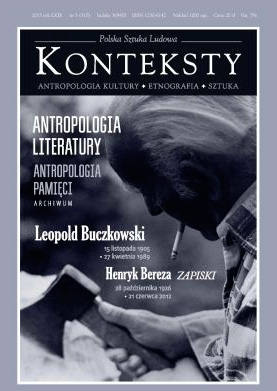Kultura religijna jako kontekst dramatu społecznego. Podole, Ukraina
Religious Culture as the Context of Social Drama. Podolia, Ukraine
Author(s): Magdalena ZowczakSubject(s): Social Sciences, Theology and Religion
Published by: Instytut Sztuki Polskiej Akademii Nauk
Keywords: Ukraine;ethnography;religion;
Summary/Abstract: The scenery of the life of communities in the neighbouring villages of Murafa and Klekotyna, situated along the eastern border of Podolia, is dominated by well-preserved churches contributing to the permanence of the traditional forms of religious culture, providing a framework for social dramas transpiring in Podolia, and assisting in their interpretation. Faith remains the basic function of constructing identity. At present, local religious culture, which assumed shape under the impact of the Russian Orthodox and Catholic creeds and Judaism, is subjected to profound transformations due to the departure of the Jewish community in the 1990s and a change in the language of the sacrum – Roman Catholic catechises and liturgy – from Polish to Ukrainian. In its contemporary form the Polish language has become the tongue of alteration, and a prominent percentage of the inhabitants of this traditional but, at the same time, mobile community has obtained Karta Polaka (Pole’s Card, Polish Charter), which facilitates economic migration and studying in Poland. The religious culture of the Roman Catholics has become an arena of an unequal battle waged by two confronting styles of religious life, its expression and aesthetics, discernible in particular within language and music. Owing to the authority enjoyed by the clergy and the latter’s local provenance (the Murafa parish is renowned for numerous callings) the ensuing modernisation of religious culture, bringing it closer to the dominating current of popular culture, is exceptionally effective. Traditional eschatology, which has grown more important as a result of the exodus of the Jewish residents and the unrest caused by the Russian invasion of eastern Ukraine, has not succumbed to modernisation. In contrast to the modernisation of Catholicism, ordained from above, the religious culture of the Russian Orthodox population, less controlled and formalised, remains strongly enrooted in local tradition and its transformations are much slower.
Journal: Konteksty
- Issue Year: 310/2015
- Issue No: 3
- Page Range: 189-205
- Page Count: 7
- Language: Polish
- Content File-PDF

